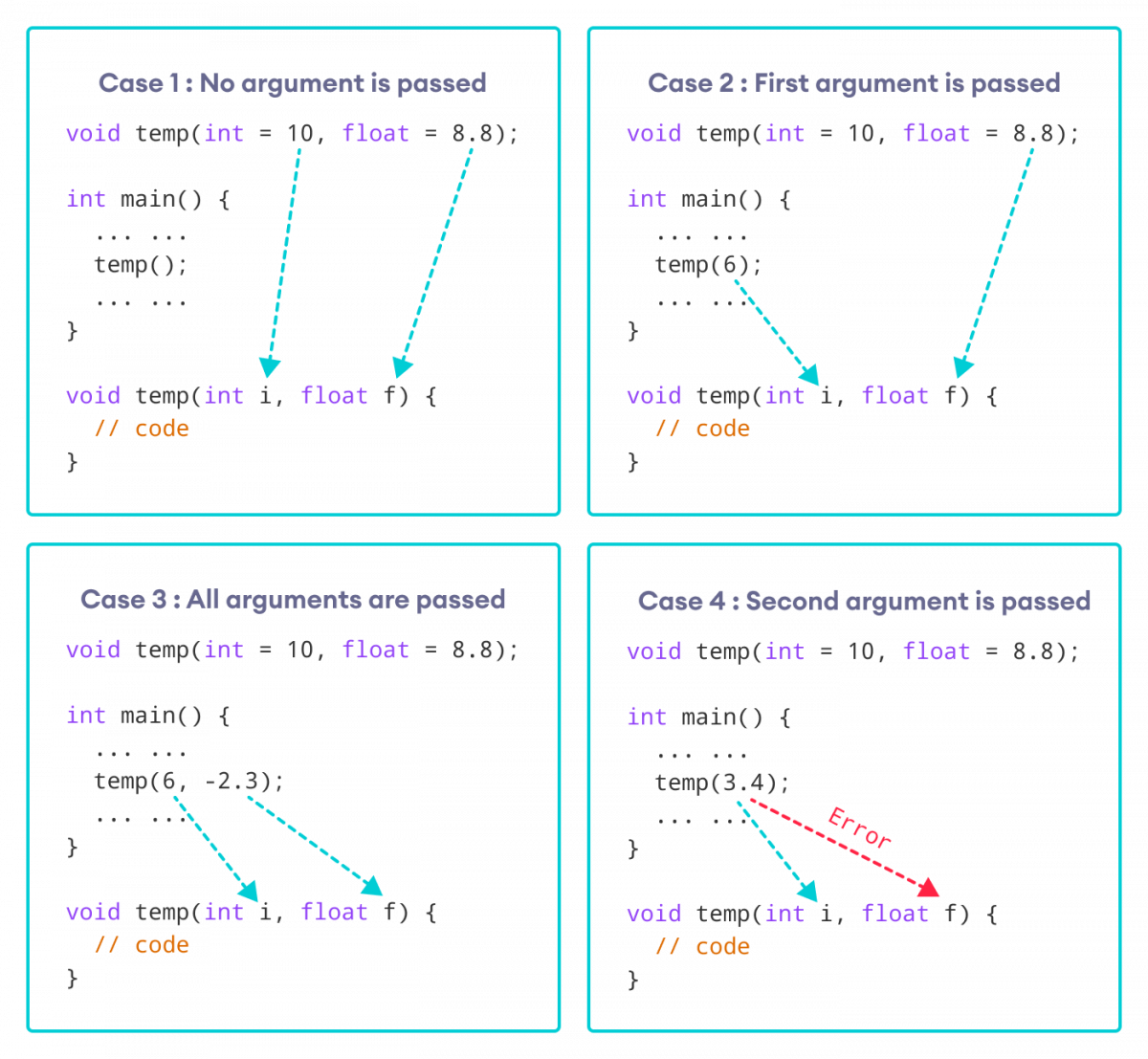📌 相关文章
- C++中的默认参数(1)
- C++中的默认参数
- Python中的默认参数
- Python中的默认参数(1)
- 参数 (1)
- 参数 (1)
- c# 可选参数 - C# (1)
- 参数化 (1)
- C#参数
- C#|可选参数(1)
- 参数与参数 (1)
- 可选参数 (1)
- 参数 (1)
- C#|可选参数
- java中的默认参数(1)
- 默认参数和虚函数
- C++ 中的默认参数和虚函数(1)
- 默认参数和虚函数(1)
- 默认参数和虚函数
- C++ 中的默认参数和虚函数
- 默认参数的 C# 程序(1)
- 默认参数的 C# 程序
- 非默认参数遵循默认参数 (1)
- Java的参数与参数
- Java的参数与参数(1)
- java代码示例中的默认参数
- 错误:为参数提供默认参数 - C++ (1)
- Python函数中的默认参数(1)
- Python函数中的默认参数
📜 C++编程默认参数(参数)
📅 最后修改于: 2020-09-25 04:49:38 🧑 作者: Mango
在本教程中,我们将在示例的帮助下学习C++默认参数及其使用。
在C++编程中,我们可以提供函数参数的默认值。
如果使用默认参数的函数调用时没有传递参数,则使用默认参数。
但是,如果在调用函数传递了参数,则默认参数将被忽略。
默认参数的工作

我们可以从上图了解默认参数的工作方式:
示例:默认参数
#include
using namespace std;
// defining the default arguments
void display(char = '*', int = 3);
int main() {
int count = 5;
cout << "No argument passed: ";
// *, 3 will be parameters
display();
cout << "First argument passed: ";
// #, 3 will be parameters
display('#');
cout << "Both arguments passed: ";
// $, 5 will be parameters
display('$', count);
return 0;
}
void display(char c, int count) {
for(int i = 1; i <= count; ++i)
{
cout << c;
}
cout << endl;
} 输出
No argument passed: ***
First argument passed: ###
Both arguments passed: $$$$$该程序的工作原理如下:
我们还可以在函数定义本身中定义默认参数。下面的程序等同于上面的程序。
#include
using namespace std;
// defining the default arguments
void display(char c = '*', int count = 3) {
for(int i = 1; i <= count; ++i) {
cout << c;
}
cout << endl;
}
int main() {
int count = 5;
cout << "No argument passed: ";
// *, 3 will be parameters
display();
cout << "First argument passed: ";
// #, 3 will be parameters
display('#');
cout << "Both argument passed: ";
// $, 5 will be parameters
display('$', count);
return 0;
}